Australian Tropical Rainforest Plants - Online edition
Calophyllum inophyllum L.
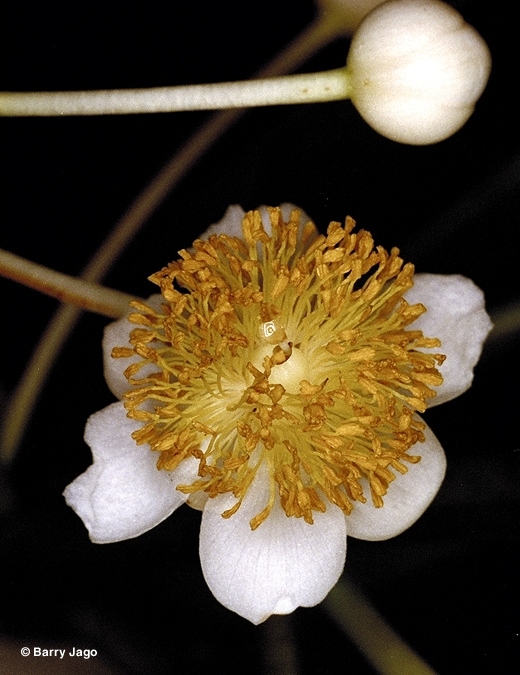
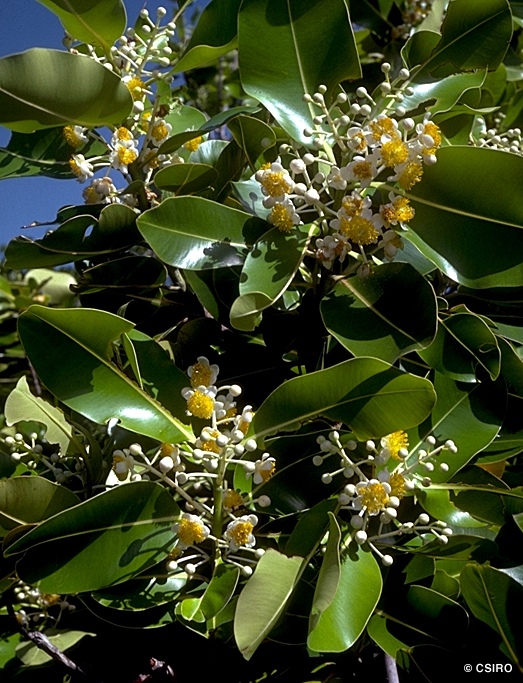
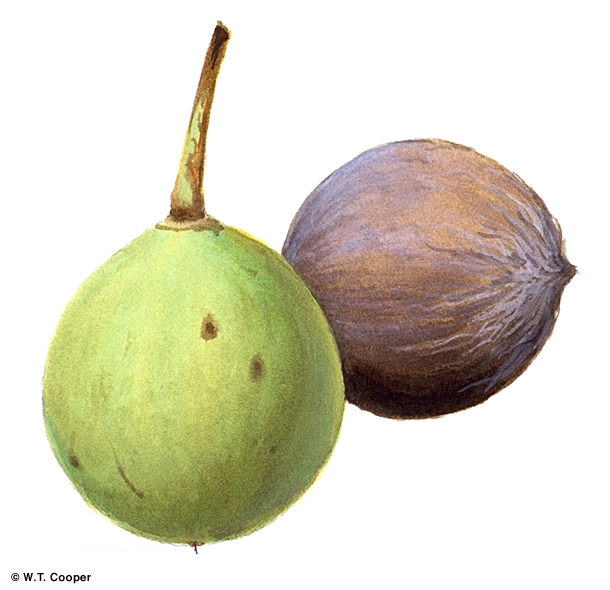
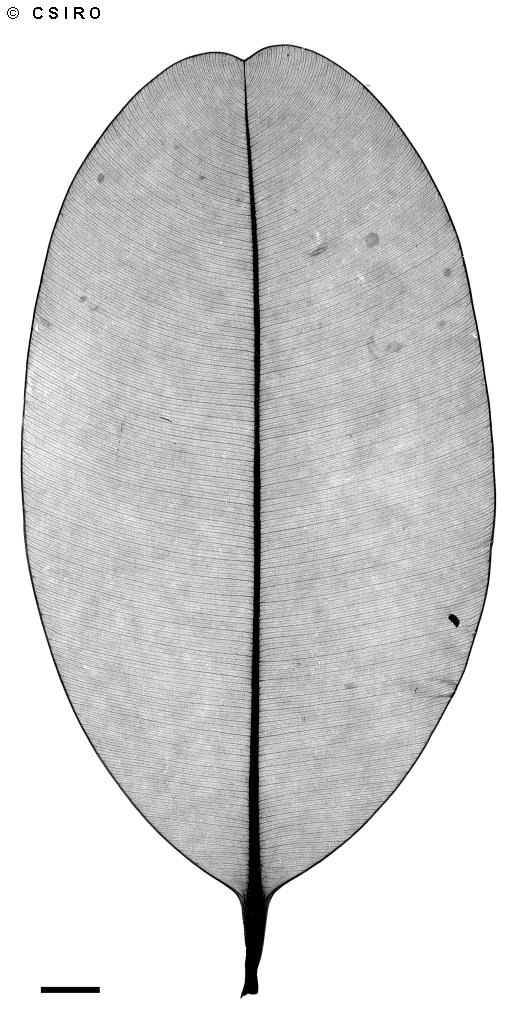
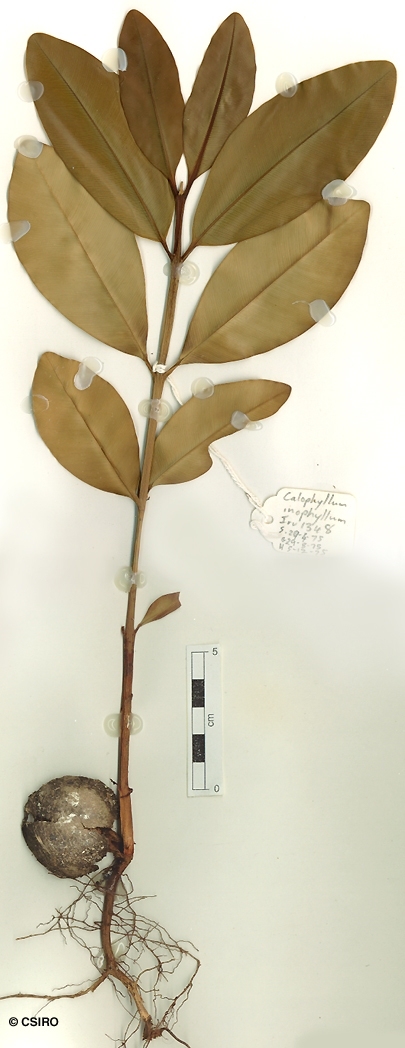
Linnaeus, C. von (1753) Species Plantarum 2: 513. Type: Habitat in India.
Indian Doomba Oil Tree; Ati; Ball Tree; Beauty Leaf; Alexandrian Laurel; Indian Laurel; Laurel, Alexandrian; Laurelwood; Satin Touriga; Tacamahac Tree; Tamanu; Touriga, Satin; Beach Touriga; Beach Calophyllum
Poorly formed or multistemmed. Bark exudate very sticky.
Fruits about 2.5-5 cm long. Endocarp about 0.7-1.2 mm thick.
At the tenth leaf stage: leaf blade elliptic; more than 50 closely spaced lateral veins run parallel from the midrib to the leaf margin; a few scattered stellate hairs on the petiole. Petiole grooved on the upper surface. Terminal bud densely hairy with pale brown tortuous hairs. Seed germination time 122 days.
Occurs in NT, CYP, NEQ, CEQ and southwards to coastal south-eastern Queensland. Altitudinal range at or close to sea level. A characteristic tree on beaches and rocky headlands often leaning out towards the sea, obviously wishing it was somewhere else. Widely distributed and cultivated throughout the tropics from West Africa to the Pacific islands as far east as Tahiti. One of the few beach trees which can withstand cyclonic winds.
Fruits and leaves poisonous (Austin, D. F. 1998. Poisonous Plants of Southern Florida). The seeds of this species are a source of Calophyllum Oil which is reputed to have medicinal and healing properties.The seed oil was used in India as an application for skin diseases and as a liniment for rheumatism. Cribb (1981).
A highly ornamental tree.
Various parts of the tree have been widely employed in medicine in other countries. Leaves soaked in water give a scented lotion which has been used in places as far apart as Fiji and Malabar in India for bathing sore eyes.





